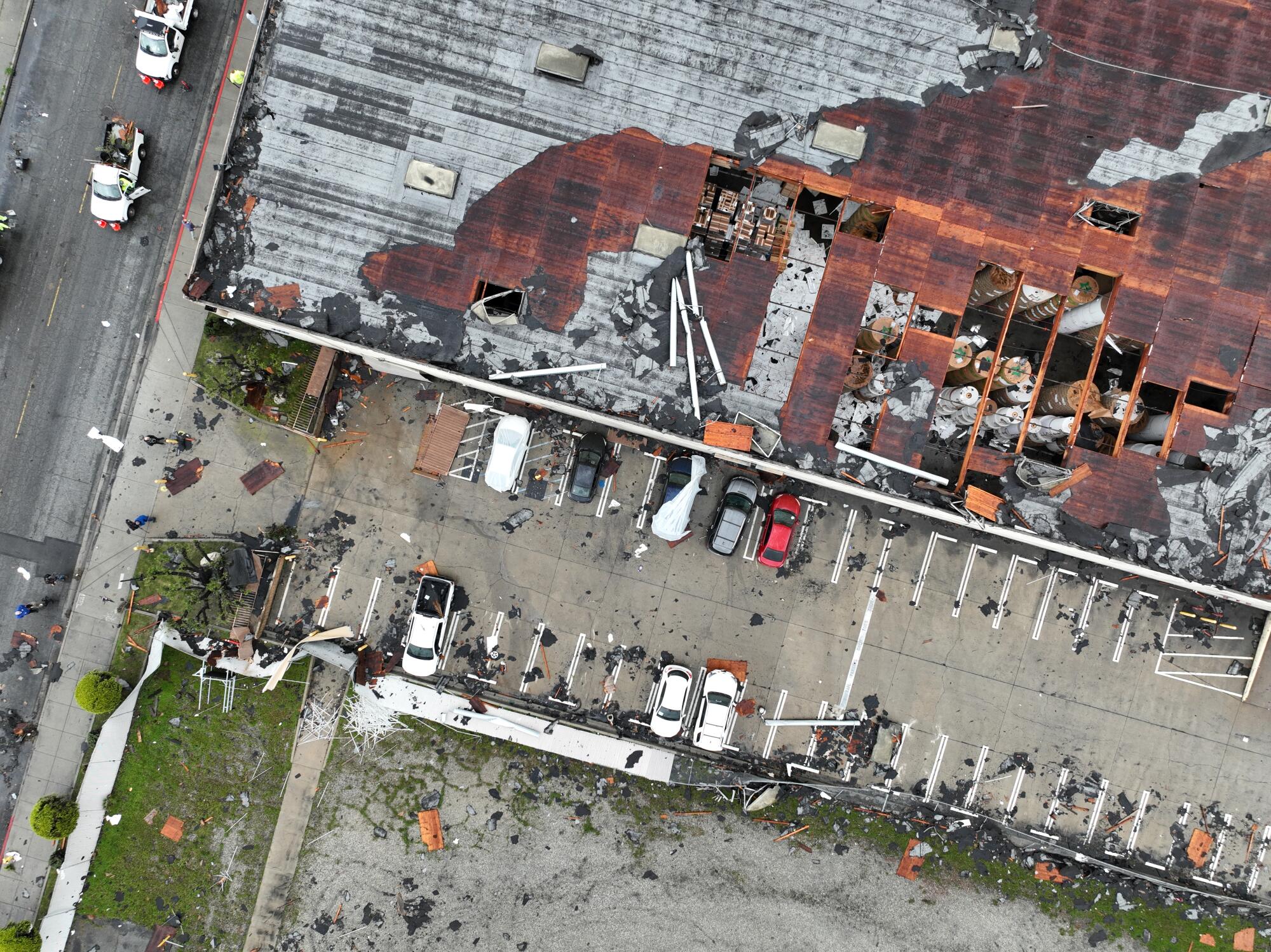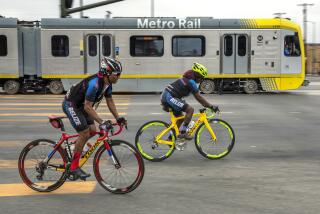
- Share via
I was nominated in 2022 by Sheila Kuehl to join the first ever Los Angeles County Youth Climate Commission. Although bureaucracy is and always will be a drag, I’ve learned that being a young person within a community is more daunting to big polluter corporations than an individual acting alone. I also realize that climate activism is, like my mentors say, “Pick up a rake, get dirty, and then you’ll be protecting the land.” Solutions gain movement when community members like me tend the mulch.
My passion for this work derives from my connection to the land and our inability to fully embrace nature’s gifts in an urban arena. I’ve always wondered how our communities would thrive and how our society’s structure would become so much more bountiful if we’d incorporated our actual environment into our planning. Instead, our society prefers creating artificial zones and synthetic ways of living.
I remember running to the San Gabriel River after football practice when I was young. It was dry season so the water was low, fish were rotting with flies, and human feces and garbage were surfacing. It still makes me sad 20 years later to see the same thing. To still see plenty of water runoff going nowhere and river beds covered in cement. To still hear people continue to lie about Los Angeles’ constant water deficit.
There wouldn’t be a water deficit nor any reason to import water if we would rethink the way we store water. The reason we’re careless with water is because we’re unwilling to admit the faults of colonialism. It’s easier to dump water into the ocean rather than admit not knowing the cycles of rain in this city. There was an epochal flood in Los Angeles 80-plus years ago, and from then on, the powers-that-be decided to cement everything and reroute an ancient waterway. We are still paying for their sins.
We have seen some progress. It shouldn’t be a surprise that living close to active dumps, oil refineries, oil rigs, power plants, etc. causes severe health issues. In 2022, we got a new law (Senate Bill 1137) that was passed to prevent drilling new oil and gas wells within 3200 feet of homes, schools, parks and hospitals. The oil and gas industry tried to get it overturned but abandoned their push in June.

Solutions to our climate problems are abundant. When you do the research and look around, money is not the issue. It’s our pride and laziness that will stop us from achieving a rebalance in our ecosystems.
I think my role is to undo colonial actions that were instilled in the first place to inflict genocidal practices against a whole continent full of people. The practices that are still in use today may be the result of ignorant compliance, yet it is still a practice of violent settler colonialism. It’s time we stop upholding such values and protect the entire human race.
After all, the Earth will always shake us back into a balanced reality, whether it benefits us or not. I have hope and joy because recently, local governments have been consulting Indigenous nations about hundred-year-old problems using thousand-year-old solutions. Firefighters, for example, have started to partner with local tribes to save national parks by implementing cultural burns and the reintroduction of species.
Individuals and communities can act. Roof garden installations on buildings can expedite heat release in whole communities and eat up air pollutants. The living walls concept can help cool air and provide an evaporative cooling effect. Green infrastructure offsets urban heat that gets trapped in concrete and other non-habitable materials.
I got into infrastructure as a solution to offset the climate catastrophe after learning from other places around the world. The Colombian city of Medellín lowered the average temperature by 2 degrees Celsius (or 3.6 degrees Fahrenheit) by utilizing green infrastructures and planting thousands of trees in a matter of 10 years.
Don’t get me wrong: Many solutions are unique to their place, but if they aren’t transferable they can be inspirational.
People are responsible for climate change. There should not be tornadoes in East L.A., but here we are. The Earth will always win out. You’ll have to decide what you’re willing to do to make it safe for our youth.
Isaac Michael Ybarra, a visual artist and storyteller, is Tongva, Chumash and Xicano. Grounded in his ancestral cultivation, he utilizes film, photography and poetry to amplify decolonial narratives and reclaim Indigenous pedagogies. He graduated from Cal State Northridge, where he learned to empower his community through coalition building and navigating bureaucracy. Today, he is a fellow for the California Creative Corps and a representative of the County in the 3rd district for the Youth Climate Commission. Through these roles, he is creating a film anthology on undoing erasure in L.A. County, reflecting a synergetic ecosystem that has thrived for thousands of years.







